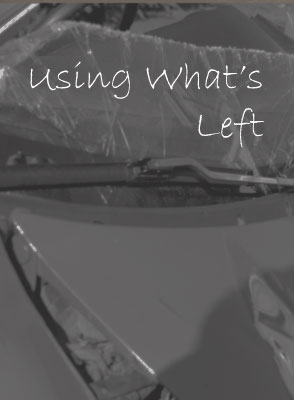 Not surprisingly, you might find it morbidly amusing when Chris Newman shears off his right thumb when he launches through his car’s windshield (drunk and on his way to Canada to escape the Vietnam draft). You will be glad when he is fired from his job as a security guard at a private mental hospital. (Who sells booze to patients at a mental hospital? Who takes sex for payment?!) You will be disgusted by him. You will be pleased when he is haunted to the edge of insanity by a mystical woman named Magnolia; and you may just shrug your shoulders when he spirals into the life of the pathetic drunk. Chris Newman hits rock bottom. You might be unmoved when he convulses on the floor of the laundry room at Elmwood Court nursing home—the alcoholic going cold turkey.
Not surprisingly, you might find it morbidly amusing when Chris Newman shears off his right thumb when he launches through his car’s windshield (drunk and on his way to Canada to escape the Vietnam draft). You will be glad when he is fired from his job as a security guard at a private mental hospital. (Who sells booze to patients at a mental hospital? Who takes sex for payment?!) You will be disgusted by him. You will be pleased when he is haunted to the edge of insanity by a mystical woman named Magnolia; and you may just shrug your shoulders when he spirals into the life of the pathetic drunk. Chris Newman hits rock bottom. You might be unmoved when he convulses on the floor of the laundry room at Elmwood Court nursing home—the alcoholic going cold turkey.
You might be disappointed that he doesn’t die then….
Then again, you may be pleased when an eighty year-old resident at the nursing home named Pearl befriends him. You might even be okay with it when they become lovers. When you watch him nurse his friend Gloria through her rounds of chemo and her sickness from cancer, you will be pleased for Chris, who at sixty, finally understands what it means to live with love, and what it means to die with dignity. You may just respect him in the end.
The respect that you have for Chris in the end he has clearly earned. He does run the gauntlet. And although he loses almost everything, including the love of his life, and a dear friend, he wins. He wins his own respect, and ours. Rather than only seeing the next drink, he learns to see the day that is in front of him. He learns to accept the past, and he understands that life is for the living.
But it takes him a long time to understand the full weight of what it is to live. As characterized in his flight to Canada, he is a coward. His missing thumb is the badge and reminder of that cowardice and selfishness. Being a righty, he functions awkwardly with his left—he is off balance, physically and mentally, for decades. It is Pearl who teaches him to use what is left—not just his hand, but his life. The badge that was for so long a beacon of shame, transforms into a badge symbolizing one’s ability to change and adapt.
Maybe that is what is attractive about this story, and similar stories: we like to think that change is possible—that we are capable of transforming, that we can have revelations and experiences that give life meaning. At the very least, we can think of people we know who might still be capable of transforming themselves.